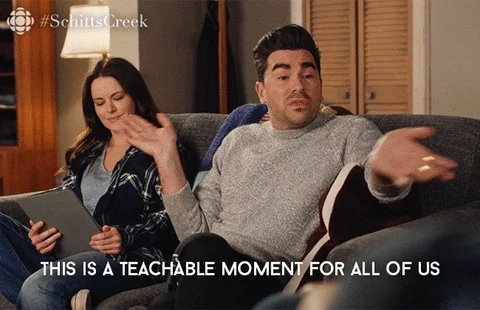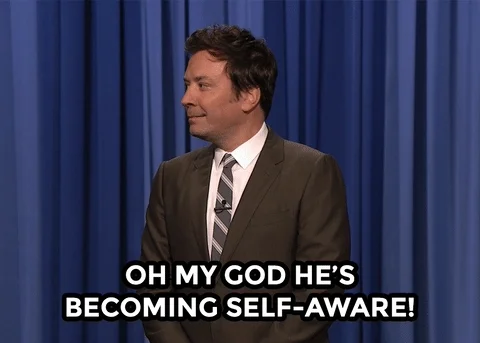
This logo isn't an ad or affiliate link. It's an organization that shares in our mission, and empowered the authors to share their insights in Byte form.
Rumie vets Bytes for compliance with our
Standards.
The organization is responsible for the completeness and reliability of the content.
Learn more
about how Rumie works with partners.
You’re in a job interview and the interviewer asks, “What would your previous employer say you have to work on?”
Your mind goes blank. Why are they asking this question? Is this a trick question?

Understand your audience.
The interviewer isn’t looking for perfection or to trick you. They want to see if you're self-aware and coachable. Why? It's important to the interviewer to see your willingness to learn and openness to discuss past challenges. Employers want to hire people who are willing to address areas of growth.
So, take a deep breath and respond to the question.
Self-awareness? Coachable? Tell me more!
What is self-awareness?
Self-awareness is "the ability to see ourselves clearly, to understand who we are, how others see us and how we fit into the world.” This awareness allows us to recognize and understand our own strengths and weaknesses and increases our openness to coaching.

What does it mean to be coachable?
Someone who is coachable is open to receiving and applying feedback. It reflects on your learnability.
People who have both these qualities adapt to feedback and do well in the workplace.
How to answer?
Interviewers use questions about past job performance to indicate what someone’s future job performance could be. When answering questions, consider your audience.
Be honest. Share an example of something you need to work on, remember to frame it positively.
How do I frame it positively?

Share what you've done to improve. Be specific and detail what progress you have made.
How to construct your answer:
What was an area to work on?
What steps did you take to improve?
What were some of the results from the changes you made? Remember, be specific.
Let's check out an example

My previous employer shared that I needed to improve my delegation skills [area to work on].
I was assigned to create a new branding package. I took the opportunity to apply their feedback. I broke down work into smaller tasks. I assigned tasks to myself and the team members. To ensure delegation, I asked myself, "Is it critical that I do this task, yes or no?"
Afterwards, I held a meeting to walk through the plan with team members so that everyone understood their responsibilities [steps to improve].
As a result, the work was completed two days ahead of schedule [result of changes].
Reminders
Remember, specificity is important!
Do
Be honest.
Share specific steps you've taken.
Share the positive results of these steps.

Don't
Share that you haven't been given feedback before.
Blame others. It's important to show ownership of your actions and improvement.
Be too critical of yourself. This is an opportunity to share an example of your coachability.
Quiz
In a job interview, Sara is asked “What would your previous employer say that you have to work on?” Sarah should say:
It's important to respond honestly while framing it positively. To hit this answer out of the park, continue by sharing specific action steps you've taken to improve and the results that you've had.
Take Action
Now that you know how to answer, "What would your previous employer say you have to work on?" take some time to prepare your answer.

This Byte has been authored by
Lauren Murray
Senior Manager, Participant Experience
BA h
